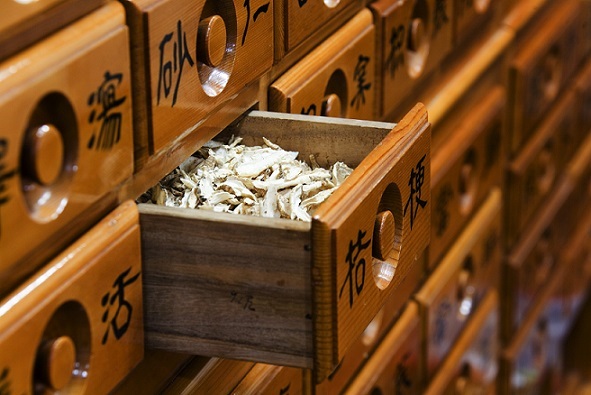Traditional Korean medicine boasts centuries of history, with herbal remedies and holistic treatments focused on patients‘ autogenic healing power.
Practitioners of herbal medicine are called “han-uisa” in Korean, and their clinics are “han-uiwon.” They are rarely ever confused with conventional doctors and clinics that practice Western medicine, known as “auisa” and “uiwon.”
A controversy is raging over the English terminology after traditional doctors changed their English job title to “doctors of Korean medicine” in late July. Before, their medical licenses, issued by the Health Ministry, and college diplomas all said “oriental medical doctor.”
“The term oriental, which refers to countries and regions in the eastern part of Asia, conjures images of shamanism and witchcraft. This could be a stumbling block to the overseas expansion of traditional Korean medicine,” said the Association of Korean Medicine, formerly the Association of Oriental Korean Medicine, in a press release, welcoming the name change.
Old tensions flare up
In Korea, like in many other countries, there is a long-standing tension between traditional and Western medicine.
Efforts by traditional doctors to drop “oriental” from its English title began a decade ago and have faced strong opposition and litigation from modern medical doctors with greater numbers and political clout.
In 2016, the Supreme Court dismissed an injunction request filed by the Korea Medical Association, the largest trade union for medical doctors here, to stop the use of the new title.
In its ruling, the court said there were many examples of a country’s traditional medicine being translated into English in the same way as Korean medicine, including Chinese medicine, Indian medicine and Mongolian medicine.
Following the ruling, the Health Ministry dropped oriental from the official license document issued to traditional doctors early this year.
Modern medicine doctors, however, aren‘t backing down.
They claim the new English term causes confusion among foreigners, particularly medical tourists, blurring the line between two vastly different medical professions.
“There are not many specialists of traditional Korean medicine overseas or foreigners who are aware of the practice. Without the word ’oriental‘ in their official title, there’s a high possibility that foreigners will mistake Korean traditional doctors for conventional medical doctors when they visit their clinics or read medical reports,” a KMA official told The Korea Herald.
KMA claims that as an alternative to oriental, the word traditional should be added citing China, who has long been using the official English title “traditional Chinese medicine.”
It is not the first time the two groups have clashed. In fact, they have been embroiled in a number of disputes involving jurisdiction, one of which centers around the question of whether a traditional doctor should be allowed to use X-ray machines.
What English experts say
The Korea Herald contacted two scholars of the English language on the issue.
Both agreed with the rationale behind herbal doctors wanting to do away with the word oriental.
Michael Chesnut, professor of the department of English for international conferences and communication at Hankuk University of Foreign Studies, pointed out that the word is often associated with colonialism and a view towards Asia that sees this region as lesser than “the West.”
“I think the term ‘oriental medical doctor’ is outdated and does carry a negative connotation to many English users in North America. Globally, I am less certain, but certainly, the risk exists that many English users could view this term negatively, see it as offensive, or view it as outdated and anachronistic.”
Whether “doctor of Korean medicine” could be misleading, the professor stressed the importance of the “context” in which the newly-coined term is used.
“The term ‘doctor of Korean Medicine’ by itself could potentially be somewhat confusing, in my opinion. However, I tend to believe the larger issue is the context in which that term is used. Whether it is a clinic website, an advertisement, an academic paper, or a discussion with a patient, the context should make the background of the medical professional clear, and if not, there may be a serious issue.”
Professor Joseph R Vincent of the same Hankuk University of Foreign Studies shared Chesnut‘s view on the word “oriental,” adding “it came from the idea of Britain’s centrality in their former empire.”
“Regarding better or newer terms, I am not an expert in any medical field, but as an ordinary person, I think Korean traditional medicine might work.”
By Choi Jae-hee (
cjh@heraldcorp.com)








![[Today’s K-pop] Blackpink’s Jennie, Lisa invited to Coachella as solo acts](http://res.heraldm.com/phpwas/restmb_idxmake.php?idx=644&simg=/content/image/2024/11/21/20241121050099_0.jpg)